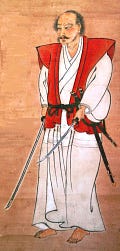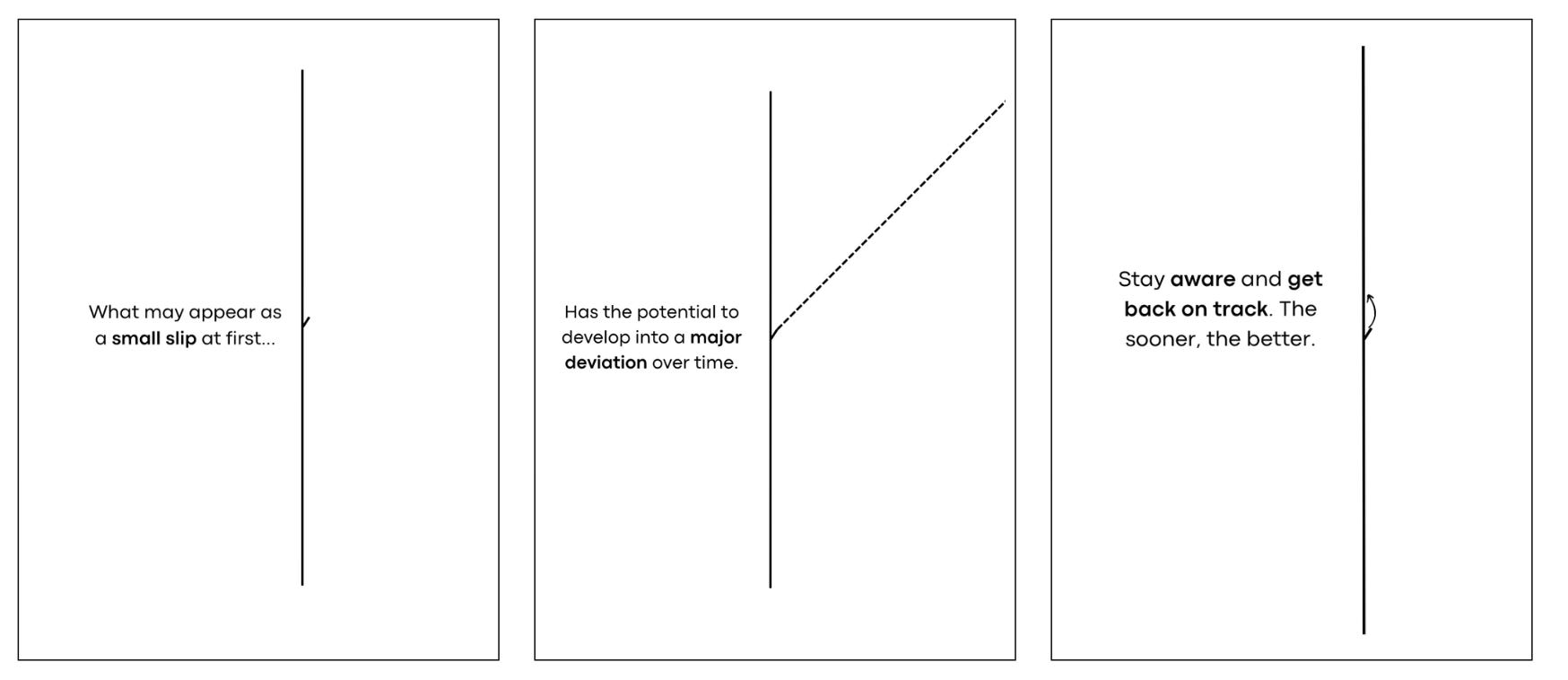Miyamoto Musashi - If you misperceive the path even slightly...
The Pen and Sword Journal - Vol 61
As I was rereading the Water Scroll (水の巻) from The Book of Five Rings by Miyamoto Musashi—perhaps for the hundredth time—there was a passage that really caught my attention. It read:
As for the principles of martial arts, although there are places in which I have written of them in terms of a duel between two individuals, it is essential to understand in terms of a battle between two armies, seeing it on a large scale.
In this way of life in particular, if you misperceive the path even slightly, if you stray from the right way, you fall into evil states.
The first part emphasizes that martial arts are more than just techniques; they’re a set of principles with broad applications beyond combat, like in social dynamics, sports, business strategy, leadership, debates, and more. For those familiar with my writings, you know I often revisit this concept.
But today, I want to focus on the second part, which reminded me of a lesson from a philosophy teacher long ago. He explained it through this example:
The most dangerous vices are those that develop “under the radar”.
I believe this is not limited to the way to Heihō no michi (Way of combat strategy) and martial arts in general. I believe this is a lesson that expands to many fields.
Many of us have likely met people who began what seemed like a harmless vice or addiction, either as a way to have fun or as a method to cope with stress, only to watch it spiral out of control over time until they ultimately lost themselves in it. I recently experienced this firsthand with a childhood friend who has become completely consumed by alcoholism. Watching him, someone I’ve known for years, transform into a shadow of his former self is deeply painful. What makes it even more painful is that, despite the knowledge and tools I’ve gained from studying clinical psychology, I haven’t been able to break through to him.
So, I’ve come to realize that in situations like these, it's sometimes better to approach the person as a friend, speaking from the heart rather than relying on clinical methods. However, even with this personal approach, I haven’t been able to reach him yet. It feels nearly impossible to reason with him in his current state. The harsh reality is that no matter how much we may want to help or how much we know, you cannot force someone to change unless they truly want it for themselves. This truth is difficult to accept, especially when we deeply care about the person and desperately want to see them recover.
In my teenage years, I struggled with a betting addiction on soccer games. I remember clearly how it started taking hold of me, and I was ashamed of who I was becoming. Fortunately, I managed to pull myself out of it with decisive action. Since then, I haven’t gambled, and I don’t intend to ever again.
I often say, "Be tolerant of some people’s weak spots, but strict with their weaknesses." Weak spots and weaknesses are synonyms in a literal sense, but I see them differently.
I view a weak (soft) spot as something deeply personal, such as someone’s family, their child, or the memory of a deceased loved one. These are sensitive areas where ego has no place, and it's crucial to approach them with compassion and understanding. In these situations, I always set aside my ego and practice tolerance.
Weakness, on the other hand, refers to self-inflicted vices—those destructive habits that individuals allow to take root in their lives. This is where we must show no remorse, and show some tough love, imposing firm and unbreakable boundaries, whether with ourselves or with others. These are the areas where strictness is essential, and we will thank ourselves later for taking decisive action. Just as I did when I quit gambling, we often realize after the fact how much better off we are when we take a stand against our own weaknesses, and others will eventually appreciate this firmness too.
The unfortunate case of the comedian Chris Farley
Chris Farley, one of the most beloved comedians of his generation, rose to fame in the 1990s as a standout performer on *Saturday Night Live* (SNL) and in hit films like *Tommy Boy* and *Black Sheep.* Known for his physical humor, boundless energy, and larger-than-life personality, Farley was adored by audiences and peers alike. However, behind the laughter, Farley struggled with deep insecurities and a constant need for approval.
To cope with the pressures of fame and his internal struggles, Farley turned to food, alcohol, and later, drugs. His eating habits, initially seen as part of his comedic persona, eventually spiraled into binge-eating and severe weight issues.
As he gained more success, his reliance on alcohol and drugs escalated, with cocaine and heroin becoming significant vices. Despite multiple attempts at rehab and a clear desire to overcome his addictions, Farley found it difficult to break free from the destructive cycle.
His personal “devils”, combined with the intense demands of Hollywood, led to erratic behavior and strained relationships. Tragically, in December 1997, Farley was found dead in his Chicago apartment at the age of 33 from a drug overdose. His death mirrored that of his comedic idol, John Belushi, who had died at the same age from a similar cause. Farley's was indeed a heartbreaking example of how addiction, even when fueled by seemingly minor vices like overeating and social drinking, can spiral into a destructive force that claims a person's life at their peak of fame.
To conclude
Upon reflection, I’ve identified some factors that often prevent people from recognizing the dangers of seemingly harmless vices:
Being in a stressful period: During times of heightened stress, people often turn to vices as a coping mechanism, without fully understanding the damage they may be causing.
Instead of falling into this trap, it's crucial to consult with a psychologist, confide in a trusted friend or family member, or develop healthier habits such as engaging in sports, walking in nature, practicing martial arts, art, etc.
Also, visualizing the potential destruction of your life and the harm to your loved ones can help break the cycle before it spirals out of control.
Imitation without reflection: Many people adopt harmful habits simply because they see others—whether friends or even respected figures—doing the same. This lack of critical thinking can lead to imitation of behaviors that are far from beneficial.
For example, even if someone’s revered mentor or sensei frequently drinks to excess, it doesn’t mean this behavior is acceptable. When someone falls into such habits, it’s important to step in and offer them a dose of reality, helping them reflect on their actions.
Giving in to weakness: It’s easy to succumb to temptations and short-term gratifications, but it's crucial to think long-term. Always consider what truly matters in life—the people you love, your goals, and your personal growth.
The best gift you can give to others is to become a better version of yourself every day, and that requires resisting the pull of destructive habits.
Vices in disguise: One particularly insidious form of weakness is when vices disguise themselves as virtues or values. Many people, like myself when I was caught up in gambling, initially view such habits as harmless or even beneficial.
I convinced myself that gambling was a quick way to earn money, unaware that it was warping my dopamine reward system and leading me down a dangerous path. It’s easy to walk into the illusion of a harmless vice, but much harder to recognize and reverse the damage before it’s too late.
These are the main reasons I’ve observed that cause people to overlook the dangers of seemingly minor vices.
What else can you add to this list? I’d love to hear your thoughts and insights.
➡️ PS: If you liked reading this, feel free to click the ❤️ button on this post, so more people can discover it on Substack 🙏
📌 𝙏𝙝𝙞𝙨 𝙥𝙖𝙜𝙚 𝙝𝙖𝙨 𝙖 𝙢𝙞𝙨𝙨𝙞𝙤𝙣.
We are dedicating our lives to develop practical psychological and philosophical methods to integrate the Way of the Warrior in people’s daily lives.
But this cause can do more, and for that we need your support.
Your contribution can help us dedicate more time and resources to do more research, and share more work with people who need to delve more into the Way of the Warrior.
If this resonates with you, I invite you to support our cause on Substack by becoming a contributor. 🙏⬇️
🔻📕Additional Resources:
If you've found the philosophy of the warrior spirit inspiring and want to delve deeper into this subject, I recommend checking out my book, "100 Thoughts for the Inner Warrior."
Whether you're seeking personal growth, to fortify your inner strength and mental resilience, or simply a deeper understanding of the warrior ethos, "100 Thoughts for the Inner Warrior" is a valuable resource that can guide you on your journey. You can find more information about the book and how to get your Paperback or Kindle copy here, and if you like the Hardcover version, you can get it here.
👉 Furthermore, you can consider joining my WhatsApp channel via this link if you don’t want to miss future updates.
Let us steer clear of what might consume our mind! 🙏🤍





Glad you mentioned Farley in this. Great example of someone who every single person that met him liked. He had those internal battles that no one ever truly knew or saw though.
Then you have this which is true: The harsh reality is that no matter how much we may want to help or how much we know, you cannot force someone to change unless they truly want it for themselves.
So true.
I’ve found from my own experience but also being around others that there comes a point in time when the person really does want to change it for themselves. But whatever “it” is, is so deeply rooted and has taken control that they really are powerless. They want to stop, and no matter how strong they are, they can’t. It’s the first step in AA, NA, etc.
It goes back to your first illustration. Getting on top and aware early if one can.
Great post 👏
Thanks that is very helpful